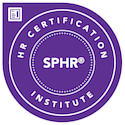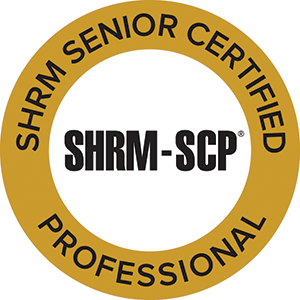The second trend I am following this year has to do with all the changes in State and Federal employment laws.
Federal
There were significant jury verdicts, settlements and other awards in 2010. One example worth noting is the $5.8 million dollars a Texas jury awarded to a white plaintiff in a reverse discrimination case of Duncan v. El Paso Electric Company. Another important trend to pay attention to, is the increase in wage and hour litigation. According to a recent SHRM article, there was a 10% increase in the number of wage and hour federal collective actions and class actions. The article points out that the exempt/nonexempt misclassification remains the source of much litigation. It is important for employers to make sure they are classifying employees correctly. For more information on the impact of wage and hour litigation, please read the following article:
http://www.shrm.org/LegalIssues/FederalResources/Pages/WageandHourLitigation.aspx
One final case that I’d like to mention is Thompson v. N. Am. Stainless LP. The Supreme Court decided to expand the protection for retaliation complaints to third parties under Title VII. In this case, Thompson was fired three weeks after his fiancée filed a charge with the U.S. Equal Employment Opportunity Commission (EEOC) claiming discrimination by her supervisors based on her gender. Thompson claimed he was discharged in retaliation for his fiancée’s charge. The court ruled that under Title VII, hurting Thompson was the unlawful act by which NAS (the employer) was hurting his fiancée. If a company must terminate an employee who has filed any type of EEOC claim, it is important that they check with legal counsel on the best course of action. In this case, even a relative of an employee who has filed an EEOC claim may be protected. It is vital that all facts are in order prior to a dismissal.
If you want to read more details about this case, SHRM has written an article about it:
http://www.shrm.org/LegalIssues/FederalResources/Pages/SupCtThirdPartyRetaliation.aspx
California
I recently attended a 2011 employment law seminar given by Hixson Nagatani, LLP. I learned over the past 12 months, California’s Supreme Court reviewed several important issues affecting businesses. They decided a variety of issues such as the impact of “stray” derogatory remarks in discrimination cases, the reach of the state’s “kin care” law and when employers might be held liable for wage and hour violations committed by subcontractors or independent contractors.
One of the more widely publicized cases in California has to do with age discrimination. The California Supreme Court weighed in on the impact of “stray” derogatory remarks in the case of Reid v. Google. The court decided to expand what counts as proof of age discrimination. This ruling will result in broadening the number and types of documents and communications especially email that will be considered relevant evidence in discrimination cases. As a result, employers may want to revise their written policies and training materials to reinforce the notion that ageist or other discriminatory remarks or jokes will not be tolerated at any level. In addition, it is critical for employers to take complaints seriously.
For more information on Reid v. Google and its impact, check-out this article from the Silicon Valley Business Journal:
http://www.bizjournals.com/sanjose/stories/2010/08/16/story2.html
My Take
This is a small sampling of recent developments in employment law over the past 12 month. I want you to have a flavor of the current litigation climate and how it impacts business. It is clear from the recent employment related verdicts that claims of discrimination, harassment and retaliation are on the raise. As a result, employers may want to revise their written policies and training materials. I’ve helped many businesses craft employee handbooks to protect them from lawsuits. Soon, I will be launching a new website to help more businesses create custom employee handbooks.
THIS BLOG POST IS OF A GENERAL NATURE AND IS NOT INTENDED TO ADDRESS ALL ISSUES OR PROBLEMS THAT MIGHT ARISE IN ANY EMPLOYMENT RELATED MATTER. NOR IS IT INTENDED TO BE LEGAL ADVICE, WHICH CAN ONLY BE RENDERED BY A DULY LICENSED ATTORNEY-AT-LAW. READERS SHOULD CONSULT WITH A LAWYER IF THEY HAVE SPECIFIC CONCERNS THAT THEY FEEL ARE LEGAL IN NATURE. NEITHER CONNECT TO HR OR MICHELLE MENDOZA HAVE ANY LIABILITY FOR HOW THIS INFORMATION IS APPLIED IN PRACTICE OR FOR THE ACCURACY OF THIS INFORMATION. THIS BLOG POST IS PROVIDED AS AN EDUCATIONAL RESOURCE ONLY, AND CONNECT TO HR OR MICHELLE MENDOZA SHALL NOT BE LIABLE FOR ANY SPECIAL, INDIRECT, INCIDENTAL, OR CONSEQUENTIAL DAMAGES, INCLUDING WITHOUT LIMITATION LOST REVENUES OR LOST PROFITS THAT MAY RESULT FROM THE USE OF THIS INFORMATION.




